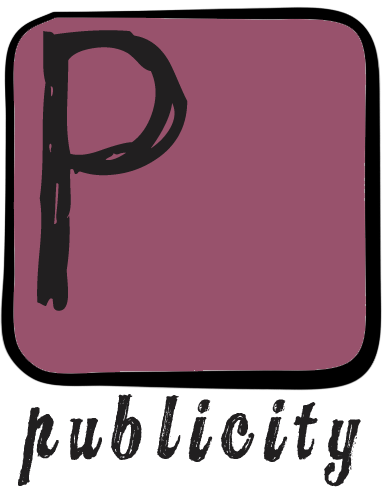I also talked about how we can shoot ourselves in the foot by taking failure to mean that either the judges are crazy, stupid or ignorant or that our writing is lousy. Either of these reactions places us in a position in which we are helpless to change anything. We believe we can't succeed either because the deck is stacked against us or because we have no talent.
The better response is to learn from the failure and try again, to use the judge's/agent's/publisher's comments as a springboard to improvement.
What I didn't talk about was the comments we receive from critique groups, writing seminars, workshops, and conferences. Or from friends to whom we have given our work for feedback. Not all the comments we get from these sources will help us grow as writers.
NOT EVERYBODY IS GOING TO GIVE US HELPFUL FEEDBACK.
There are a number of things to keep in mind when evaluating feedback.
- Is the person a writer? If so, does he have an axe to grind?
- Is the person a reader? Is she a sophisticated reader? Does she read the kind of stories you like to write?
- Is the person superior in his own eyes? Does he see himself as the last word in discernment? Is he ready to tell you whose work is great and whose is trash? In other words, is his critique all about proving how great he is?
- Have you respected what the person has had to say about other people's writing?
I had quite an experience years ago.
I went to a writer's conference where there were scheduled sessions during the day, but "Pirate" sessions late at night. Starting around eleven p. m., the "cool" people gathered in an auditorium and awaited the "great man." This was a teacher whose short stories had appeared many years before but who was no longer active as a writer. He did, however, teach at this particular conference every year. He would wander in around midnight and take his seat on the stage.
He would then ask those who wished to be critiqued to rush the stage to take a number. People pushed, pulled and tripped each other to get to the stage to get a low number. Only a few could be read and critiqued in a single session--though we stayed there until four a. m. some nights--and there were no holdovers. If you didn't get to read that night, the whole process started over the next night.
So, from the get-go, the critique session was not only competitive, it was cutthroat.
It got worse from there. When someone took to the stage to read their piece, listeners tried to outdo each other to rip it to shreds. The "great man" held his peace until the bloodletting was over. Then he might say, "I might have liked your story until_________ said___________. But I see he was right."
The person mentioned was usually the most vicious critic. The writer was not allowed to defend her point-of-view, and would leave the stage feeling humiliated.
Why did I attend? Because someone I respected told me that these pirate sessions were the best way to drop my ego involvement with my work and to grow a thick skin. To be a writer, I was told, I had to forget about sensitivity and hurt feelings.
When it was finally my turn on night three or four, I read my piece and waited. There was silence for a long time. After awhile, the great man, nodded and murmured that the piece might be quite good. He invited others to weigh in. A hand shot up. It was a young girl, maybe fourteen years old. She'd been given a scholarship to the conference because her high school teacher believed she had great promise and the conference leaders agreed. She proceeded to pick the story apart, using terms and words learned from the older participants over the course of the week. As far as I could tell, her comments showed little understanding of what I was trying to do with the story. When she finished, others joined her. (Some attacked her critique, but not to defend me, only to claim a superior ground from which to criticize my piece.) Finally, the great man shrugged. "I guess I was wrong," he said. "Your colleagues have spoken."
These pirate sessions, of course, were an abuse of the critique process. I (and countless others) would have done better to stick to the day sessions. But, for some reason, I wanted a stamp of approval, an imprimatur, from these prestigious extra night sessions and the great man who ran them. It's probably something to do with needing approval from a critical father or something stupid like that.
To this day, I have never figured out why the great man ran his sessions the way he did or what he thought anyone gained from them.
Which brings me back to my point:
NOT EVERYBODY IS GOING TO GIVE US HELPFUL FEEDBACK.
Above I suggested several factors to take into account when evaluating a critique. They all boil down to this:
CONSIDER THE SOURCE.
If you have reason to respect the person's opinion, by all means use the critique to recognize the strengths and weaknesses of your piece and improve it.
Respecting the person opinion means:
Why did I attend? Because someone I respected told me that these pirate sessions were the best way to drop my ego involvement with my work and to grow a thick skin. To be a writer, I was told, I had to forget about sensitivity and hurt feelings.
When it was finally my turn on night three or four, I read my piece and waited. There was silence for a long time. After awhile, the great man, nodded and murmured that the piece might be quite good. He invited others to weigh in. A hand shot up. It was a young girl, maybe fourteen years old. She'd been given a scholarship to the conference because her high school teacher believed she had great promise and the conference leaders agreed. She proceeded to pick the story apart, using terms and words learned from the older participants over the course of the week. As far as I could tell, her comments showed little understanding of what I was trying to do with the story. When she finished, others joined her. (Some attacked her critique, but not to defend me, only to claim a superior ground from which to criticize my piece.) Finally, the great man shrugged. "I guess I was wrong," he said. "Your colleagues have spoken."
These pirate sessions, of course, were an abuse of the critique process. I (and countless others) would have done better to stick to the day sessions. But, for some reason, I wanted a stamp of approval, an imprimatur, from these prestigious extra night sessions and the great man who ran them. It's probably something to do with needing approval from a critical father or something stupid like that.
To this day, I have never figured out why the great man ran his sessions the way he did or what he thought anyone gained from them.
Which brings me back to my point:
NOT EVERYBODY IS GOING TO GIVE US HELPFUL FEEDBACK.
Above I suggested several factors to take into account when evaluating a critique. They all boil down to this:
CONSIDER THE SOURCE.
If you have reason to respect the person's opinion, by all means use the critique to recognize the strengths and weaknesses of your piece and improve it.
Respecting the person opinion means:
- You know his motive is to be helpful.
- You are reasonably sure she knows good writing when she sees it.
- You believe he knows how to pinpoint strengths and weaknesses.
There is no substitute for testing our work with other writers and/or readers. We all know how difficult it is to see our work clearly when we are close to it.
But, for God's sake, choose your readers carefully!
What about you? Have you been unfairly critiqued?






